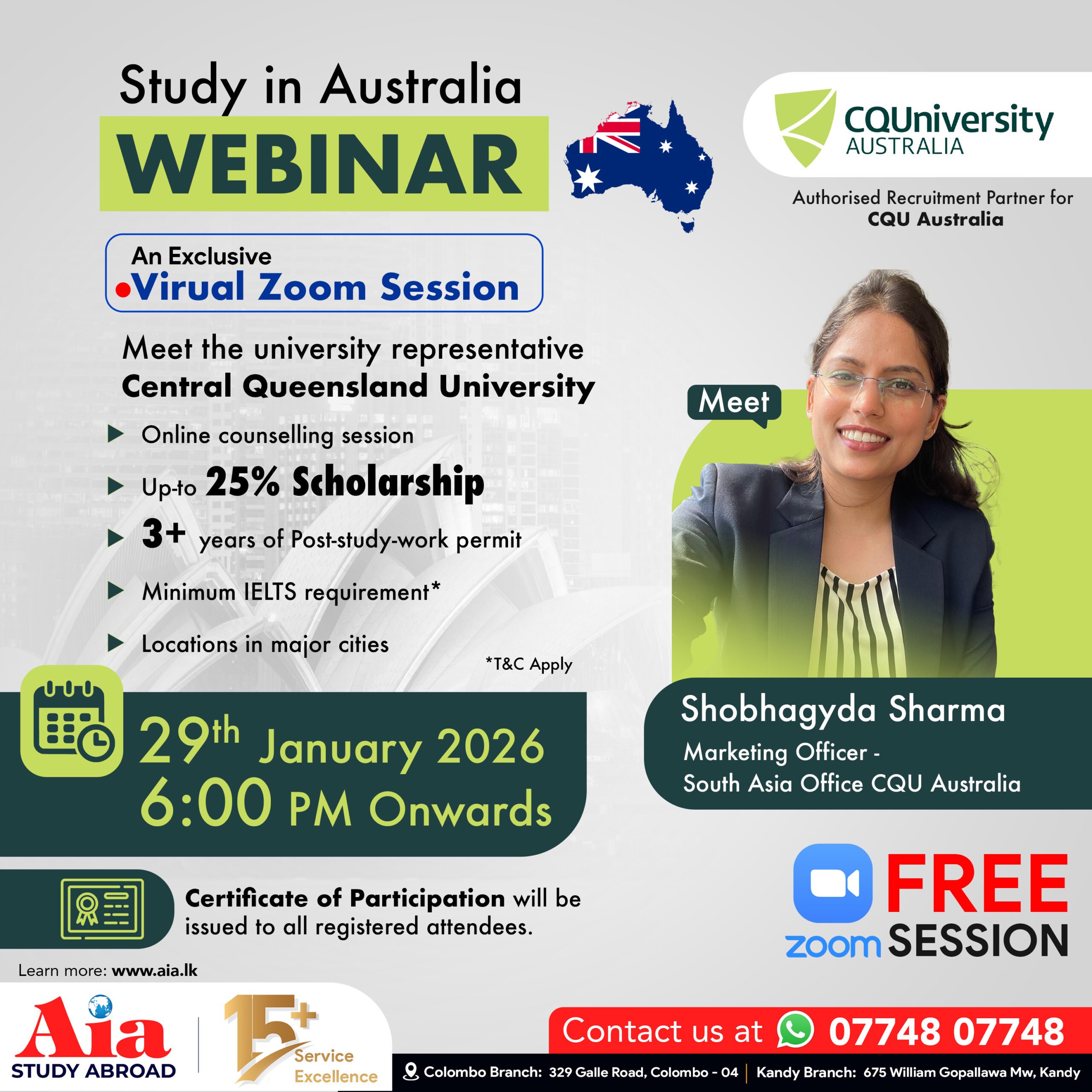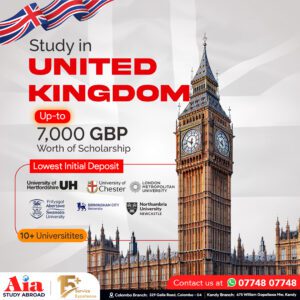CQU Study in Australia Webinar 2026
📍 Online Zoom Session
🗓 29 Jan 2026, 6:00 PM
Loading countdown…
Study in Australia Webinar – Countdown Begins 🇦🇺🎓 Get ready for an exclusive virtual Zoom session with Central…
MDX Dubai Admission Week 2026
📍 AIA Study Abroad Head office: 329 Galle Road, Colombo 04 | Kandy Branch office: 675 William Gopallawa Mw, Kandy
🗓 01 Feb 2026, 10:00 AM
Loading countdown…
MDX Dubai Admission Week – Countdown Begins 🎓🇦🇪 The countdown has started for Middlesex University Dubai Admission Week…


